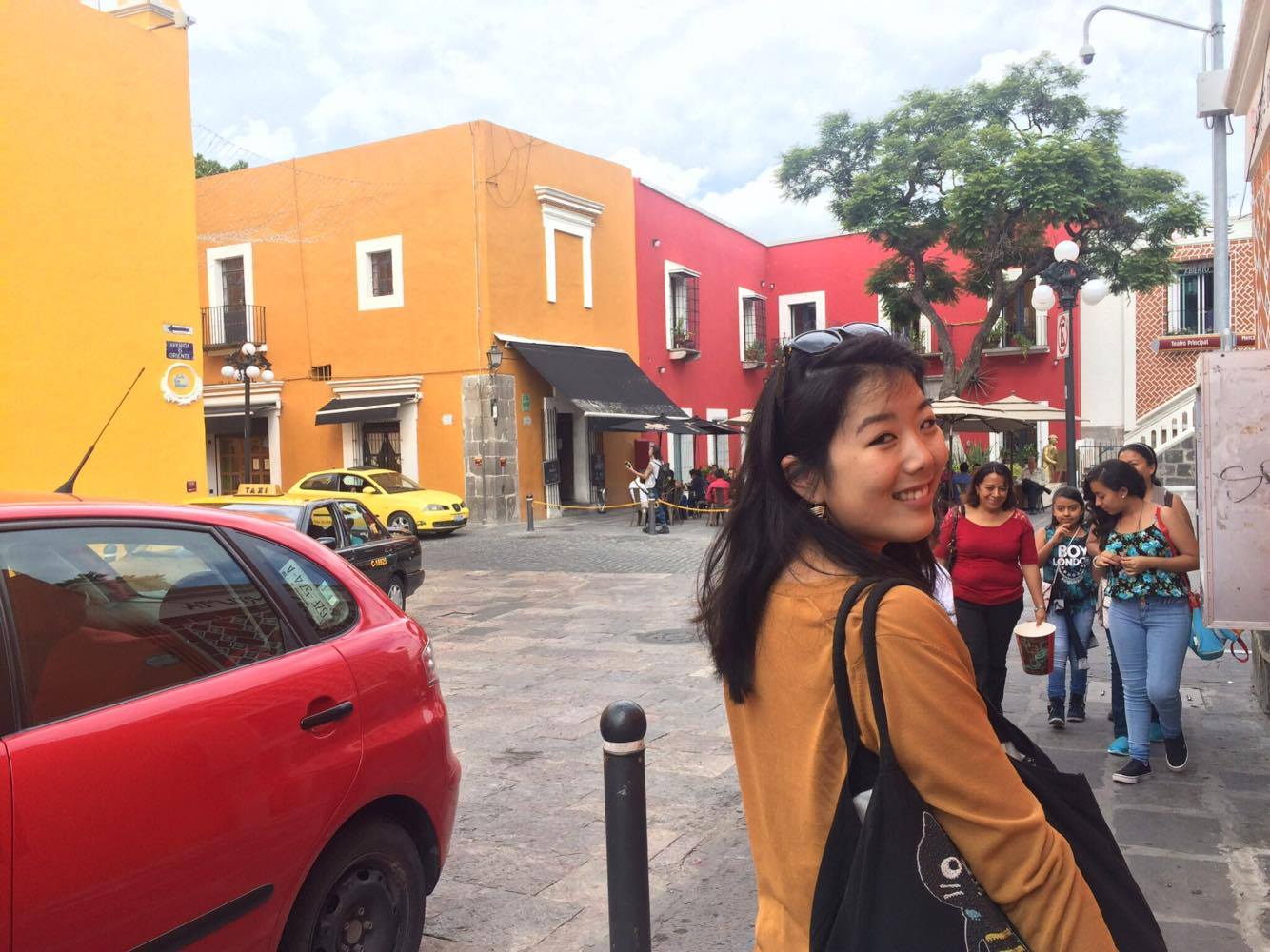News | UCLA MURP Student Ribeka Toda Gains New Perspective in Mexico
Stop the VideoNews

PSR METRANS UTC
UCLA MURP Student Ribeka Toda Gains New Perspective in Mexico
Sunday, August 6, 2017
by By Rabi Abonour, UCLA Master of Urban and Regional Planning, 2018
The UCLA Master of Urban and Regional Planning (MURP) program is only two years long, and there’s plenty to do in Southern California during that time. But Ribeka Toda, UCLA MURP ‘18, knew that making the most of her experience at UCLA meant getting an outside perspective. To that end she is using her summer break to intern in Mexico City with the traffic safety department of Laboratorio para la Ciudad, an innovative planning division of the city government.
Toda expected to spend her time at Laboratorio analyzing traffic safety data for Mexico City’s Vision Zero Program. With a background in transportation engineering and experience working with the Vision Zero team at the Los Angeles Department of Transportation (LADOT), she was prepared for the job. But when Toda started work, it became clear that the work wasn’t going to be what she expected.
“I get here and they’re like ‘we don’t have data,’” she explained. Mexico doesn’t have the same systems for collecting crash data that we take for granted in the United States, which is a major roadblock to implementing Vision Zero in Mexico City.
The challenges faced by the team at Laboratorio have forced Toda to think more philosophically about urban planning. Rather than crunching numbers, she is working to convince leaders in city government that gathering those numbers is important in the first place. Toda says that estimates of yearly traffic fatalities in Mexico City range from 200 to more than 1,000.Without accurate data, her team is unable to make changes that could move the city towards Vision Zero.

Ribeka Toda in Mexico City
“American citizens are kind of wired to use data to their advantage,” she explained. “They use data to oppose projects. So that is what happens when we have open data: people come to these meetings and your study because this number’s this and this number’s this. People feel like they have the right to the numbers, whereas here that is not a thing at all. Nobody asks for it.”
Working in Mexico has allowed Toda to see the importance of data in the planning process; transparency underpins democratic planning. This realization about the importance of open data has prompted her to look at urban planning as more than technical.
“We always talk about how planners avoid politics, and I think engineers even more so,” she said. “I think going back I want to focus more on policy, not shy away from it. It’s messy, but we need people who are multidisciplinary to make policy.”
When Toda returns to Los Angeles, she hopes to take the lessons she’s learned in Mexico back to LADOT. Beyond a new appreciation for open data, living in Mexico City is giving her the opportunity to hone her Spanish, a vital skill for performing effective community outreach in our multilingual city. LA has a long way to go to reach Vision Zero, and experiences like Toda’s will better inform and prepare the city for the challenges ahead.
About the Author
Rabi Abonour is a Master of Urban and Regional Planning student at the UCLA Luskin School of Public Affairs specializing in transportation policy and planning. He expects to complete his degree in June, 2018. Rabi has a background in bicyclist and pedestrian safety and is currently interning with Metro Bike Share. He can be reached at [email protected].
News Archive
- December (1)
- November (6)
- October (4)
- September (2)
- August (3)
- July (4)
- June (3)
- May (7)
- April (8)
- March (11)
- February (8)
- January (7)
- December (7)
- November (8)
- October (11)
- September (11)
- August (4)
- July (10)
- June (9)
- May (2)
- April (12)
- March (8)
- February (7)
- January (11)
- December (11)
- November (5)
- October (16)
- September (7)
- August (5)
- July (13)
- June (5)
- May (5)
- April (7)
- March (5)
- February (3)
- January (4)
- December (4)
- November (5)
- October (5)
- September (4)
- August (4)
- July (6)
- June (8)
- May (4)
- April (6)
- March (6)
- February (7)
- January (7)
- December (8)
- November (8)
- October (8)
- September (15)
- August (5)
- July (6)
- June (7)
- May (5)
- April (8)
- March (7)
- February (10)
- January (12)















